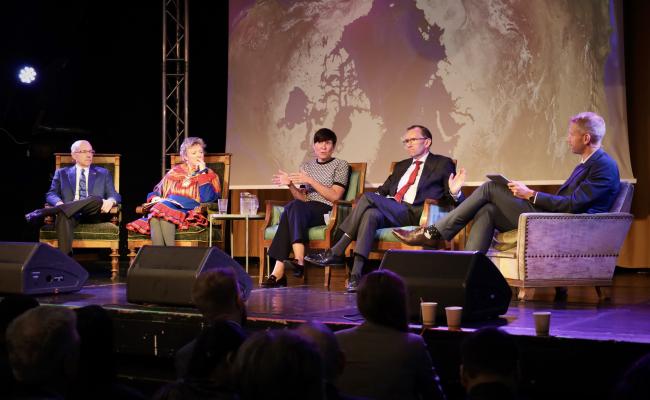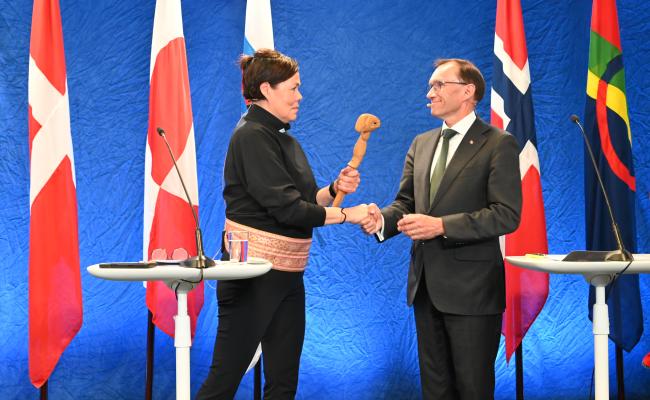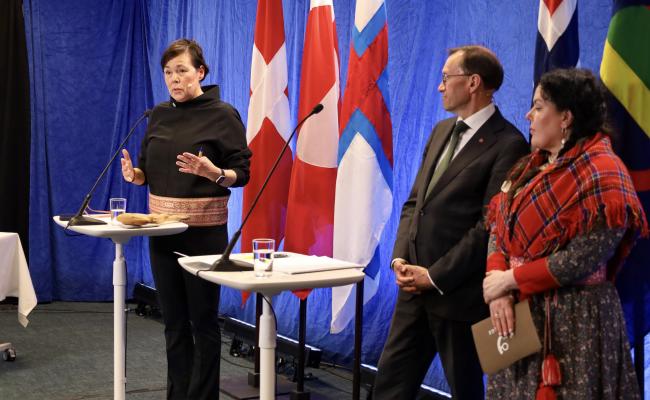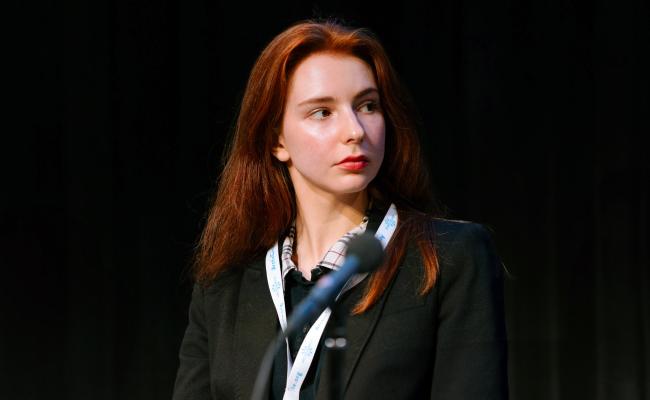Arctic Security Conference 2025: Believes the Arctic Council Will Survive
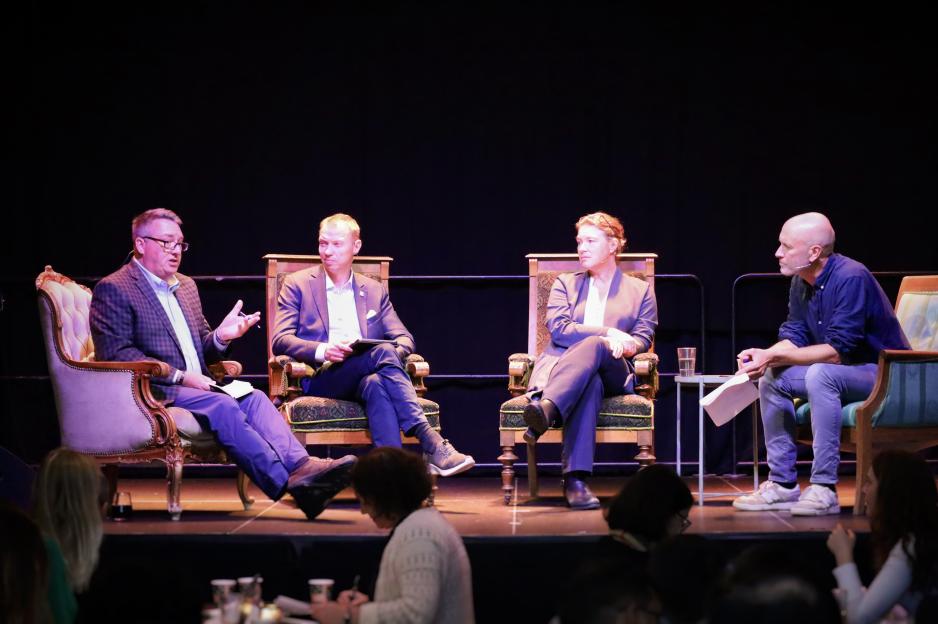
From the left: Benjamin Strong and Rolf Rødven have leading roles the Arctic Council's working groups on Emergency Preparedness and Prevention (EPPR) and Arctic Environmental Monitoring and Assessment (AMAP), respectively. Here, they participated in a panel discussion during the Arctic Security Conference together with Jennifer Spence, Director of the Arctic Initiative at Harvard Kennedy School. The discussion was chaired by Svein Vigeland Rottem, Senior Research Fellow at the Fridtjof Nansen Institute. (Photo: Astri Edvardsen)
Oslo (High North News): The cooperation with Russia in the Arctic Council works, reports leaders in the council's working groups. Various voices are also optimistic in regard to the council's survival. "The council’s continued existence will be in everyone’s interest", says Norwegian top diplomat Morten Høglund.
The Arctic Council's main work takes place in six working groups and one expert group, under which many projects are organized.
At this level, which primarily includes researchers and professionals, the cooperation between all eight Arctic countries continues. Council meetings at the diplomatic and political levels are still paused.
"Our work is progressing and we are interacting digitally with the shared goal of ensuring security in the Arctic," says Benjamin Strong, Chair of the Emergency Prevention, Preparedness and Response (EPPR) Working Group, at the recent Arctic Security Conference, organized by the Fridtjof Nansen Institute.
EPPR's work is based on two legally binding agreements that the Arctic countries have entered into within the framework of the Arctic Council on search and rescue, as well as marine oil pollution preparedness and response.
All member states are engaged
"Our focus is on saving lives and protecting the marine environment in the region. We are still developing new ways to implement these agreements, and we are improving our ability to conduct search and rescue, as well as removing oil spills in icy waters," says Strong and continues:
"This is also something we are practicing for, including with Russia through EPPR. We conduct communication exercises within the two agreements one to two times a year. This ensures that we are capable of connecting all coordination centres for search and rescue in the Arctic, as well as the actors responsible for oil spill response in the region."
"People should know that we have successfull exercises and that all the Arctic states are very engaged in ensuring the ability to respond in case of accidents and oil spills."
Also read (the article continues below)
We are live and kicking.
Productive
Rolf Rødven, Executive Secretary of the Arctic Monitoring and Assessment Programme (AMAP) Working Group, can also report on a functional cooperation with the Russian side.
"One sometimes hears that the Arctic Council is dying, but I would say that we are live and kicking," says Rødven and continues:
"This spring, we of AMAP have produced three reports: one on climate change, one on microplastic pollution, and one on radioactivity. Researchers from Norway, Russia, and the USA are behind the report on radioactivity. They have discussed around a virtual roundtable and reached a consensus on the report."
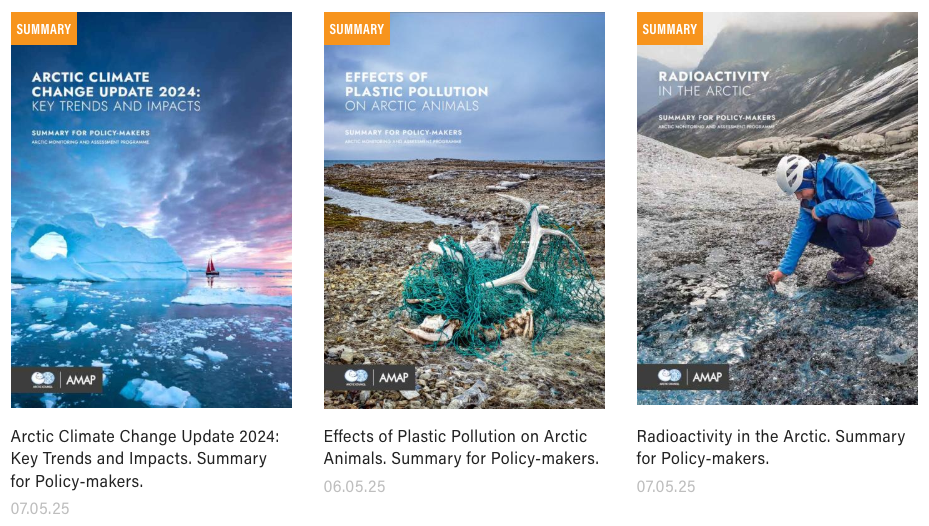
The covers of AMAP's reports from spring 2025. (Screenshot from the Arctic Council)
A clear rationale
Rødven particularly emphasizes the significance of the council's assessments of climate change covering the entire circumpolar region.
"Oftentimes, one speaks of the Arctic as if it were a homogenous area, which it is not. If one takes Russia out of the equation, one does not just lose precision in estimates regarding climate change, but there will also be bias. Without Russian data on how climate change impacts vegetation, for example, climate models are set back 80 years in time," he points out and continues:
"This is also relevant concerning monitoring permafrost. Thawing permafrost impacts how quickly we must reduce emissions to limit global warming. Most of the permafrost is located in Russia, covering approximately 60 percent of the country's territory. If we don't receive data on the Russian permafrost, it will be very difficult for us to predict what the future will look like, not just for Norway, but for the entire world. This is the rationale for cooperating with Russia."
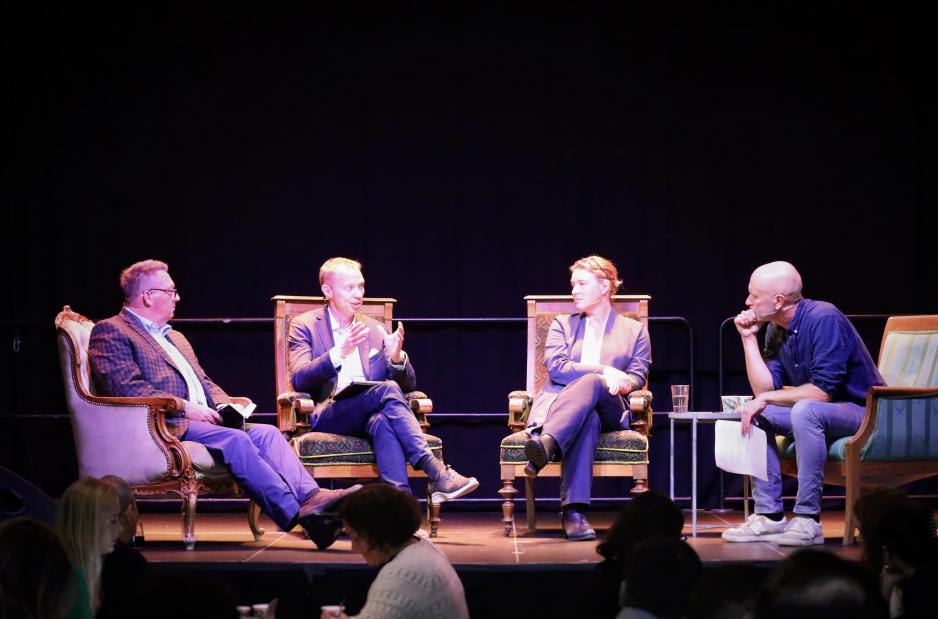
"One must be aware of conflict lines, but also allow oneself to discuss scientific issues under the umbrella of the Arctic Council, as one does, for example, within the framework of the UN," says Rolf Rødven (second from left), AMAP Executive Secretary. (Photo: Astri Edvardsen)
"Not just ok, but necessary"
"The Arctic Council has, as far as possible, stuck to its knitting, and conducts work at an expert level in order to promote development in various policy areas. This is possible in a context in which one seems to be able to de-politicize the work," says Jennifer Spence, Director of the Arctic Initiative at Harvard Kennedy School's Belfer Center.
Spence underscores the significance of holding two thoughts at once: condemning Russia's warfare in Ukraine, while also being pragmatic in regards to the need for cooperation with the Russian side, to save lives and develop good scientific assessments of climate change in the region, among other things.
"It is not just okay, but necessary to let researchers and practitioners operate a pragmatic cooperation," she believes.
At the same time, the situation around the Arctic Council remains unstable, Spence points out.
"We cannot take for granted that things will be able to continue as it does now. For the time being, I don't believe that multilateral cooperation in the Arctic is on the Trump Administration's radar, and to be honest, I hope it stays that way. Much good can be done in specific fields through the council's working groups as long as the work is not politicized."
Also read (the article continues below)
· Arctic Contaminants Action Program (ACAP)
· Arctic Monitoring and Assessment Programme (AMAP)
· Conservation of Arctic Flora and Fauna (CAFF)
· Emergency Prevention, Preparedness and Response (EPPR)
· Protection of the Arctic Marine Environment (PAME)
· Sustainable Development Working Group (SDWG)
· Black Carbon and Methane Expert Group (EGBCM)
Optimism
"I believe the Arctic Council will survive. The council’s continued existence will be in everyone’s interest. We have put some very challenging years behind us, but none of the member states have said that they want to leave the council," states top diplomat Morten Høglund of the Norwegian Ministry of Foreign Affairs.
He is the former Norwegian ambassador to the Arctic and was the Chair of the Senior Arctic Officials of the Arctic Council during the Norwegian chairship (May 2023-May 2025).
"However, ensuring survival requires work every day. And a future for the council does not come for free. One must invest in it, first and foremost, with human capital," says Høglund.
The diplomat also emphasizes the significant role of the forum.
"Through its existence, the Arctic Council brings security to the Arctic. The council contributes to predictability and stability. It is an important part of the structure for governance in the Arctic, together with the law of the sea and other international agreements and arrangements," he points out and continues:
"Having such a forum for all the Arctic states to communicate on issues such as search and rescue and oil spills allows me to sleep better at night. The council is far from the answer to all issues in the region, but it is a part of the solution and an important arena for dialogue."
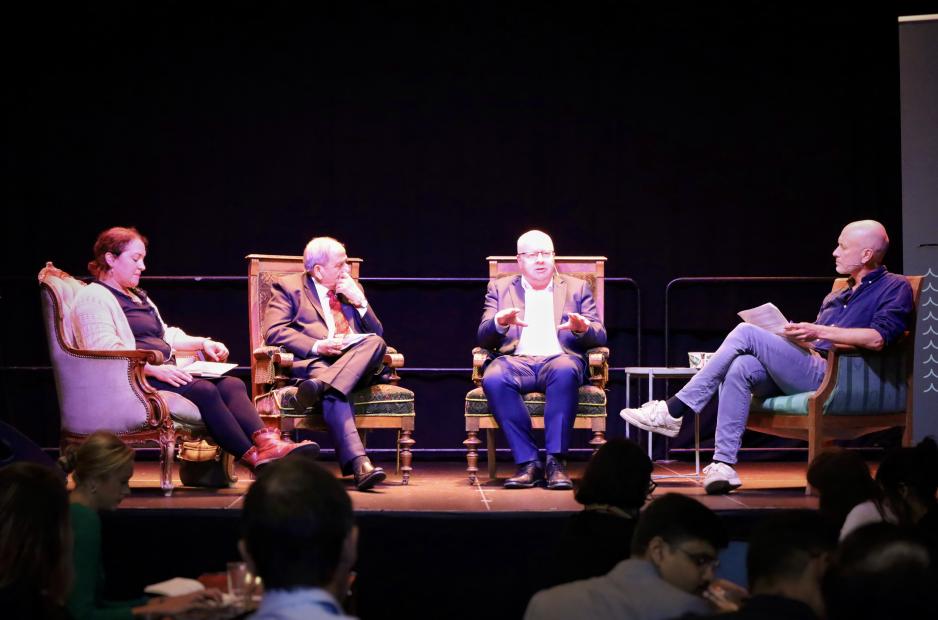
"One does not participate in the Arctic Council to put down one's own flag, but to solve shared challenges and better understand what is happening in the region. Such a common objective has helped the council get through very difficult times," says top Norwegian diplomat Morten Høglund (third from left). Here with NMBU professor Elana Wilson Rowe and former NCAOR director Rasik Ravindra. (Photo: Astri Edvardsen)
Has proved resilient
Elana Wilson Rowe, Professor at the Norwegian University of Life Sciences and research professor at the Norwegian Institute of International Affairs, seconds Høglund's belief in a future for the Arctic Council.
"If one looks at the past 100 years, a few international organisations have died. The organisations that survive are those that fulfill interests. Be it that they contribute to safeguarding broader political interests, or that they ensure orderly relations by creating arenas for communication and decision-making. The organisations that manage to survive also tend to respond to functional interests, such as the need for knowledge about climate change and pollution," Rowe points out.
The Arctic Council has provided results in the aforementioned fields. In addition, we must take into account that the council also includes Indigenous organisations, and is therefore a unique meeting place, she points out.
"The council has survived some major shocks and there may be new ones, but I am cautiously optimistic about its continuation given its track record," says the professor.
Rasik Ravindra, former head of the National Centre for Polar and Ocean Research under India's Ministry of Earth Sciences, agrees.
“I am also optimistic about the future of the Arctic Council because the geopolitical situation is dynamic. This conflict will not last forever. Eventually, things will be able to calm down, and we can return to a good level of functioning,” says Rasik.


